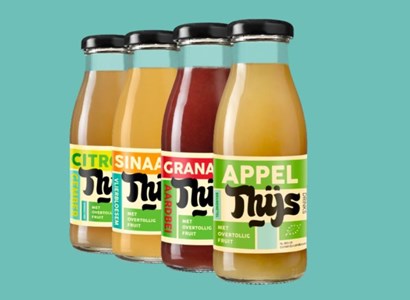About a third of all food production worldwide is wasted. In the Netherlands that is about 800 million kilos per year! Almost one third of this consists of fruit and vegetables.
We not only waste food, but also energy and CO2 emissions from production and transport, unnecessary packaging and a lot of water. For the imaging: 80 liters of water are needed to produce one apple.
In our THIJS drinks we process – as much as possible – residual flows of fruit. Just like when we started.
By this we mean less 'beautiful' and therefore rejected fruit, but also excess fruit for which there is no direct destination, or already processed juices whose best-before date is likely to expire.
In recent years, however, we have noticed that purchasing these residual flows has become more difficult, while the demand for our drinks has only grown. This reduction in residual flows has a number of causes.
For example, there are now more initiatives based on leftover fruit in all layers of the chain. In addition, production is also much smarter. By organizing the production process differently, you prevent residual flows from being created in advance. Another important cause is climate change, as a result of which harvests fail more often, scarcity arises and there is therefore much less 'excess'.
In order to continue making our drinks, we have found a solution. Everything that we cannot make with residual flows, we supplement with fruit from 'class 3', also known as 'industrial fruit'. That fruit is not suitable for eating fresh and is therefore often processed into juice.
This way we can continue to make our drinks and continue our mission against waste.
Better drink THIJS.
